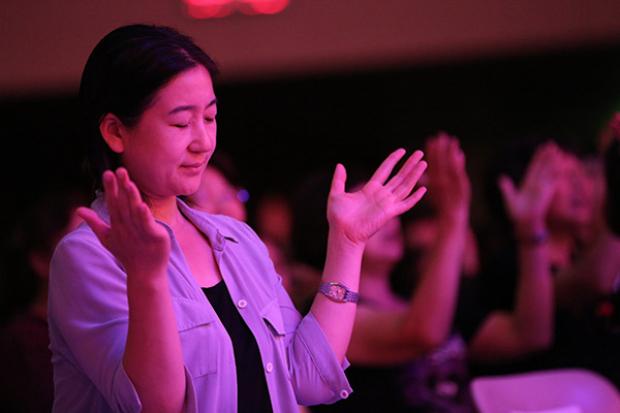On May 28, 2020, Li Xiaomin, the famous Christian songwriter, shared about the revival of the Chinese church in 1900.
In an online two-day conference sponsored by the Beijing Zion Church, Xiao Min said that revival in the past century began around the year 1900 with the sacrifice of foreign missionaries for Chinese churches.
The conference was titled the Gengzi Year of Revival in China in reference to a “gengzi year,” which occurs ever 37 years in the traditional 60-year lunar calendar, Xiaomin repeatedly compared the two gengzi years, 1900 and 2020, calling the modern Chinese churches to learn from history and never lose their first love and belief in God.
Xiao Min shared the example of James Hudson Taylor (1832-1905), the founder of the China Inland Mission (CIM), one of the largest Christian mission movements in the world. Despite suffering hardships in a war-torn country, with ill-health and under persecution, Taylor devoted his entire life to serving God and spreading the gospel in mainland China.
According to Xiao Min, Taylor was often misunderstood by the local Chinese during his practice as an eye doctor, and his children were almost killed by stones that were thrown at the family. At the end of the 19th century, the Boxer Movement in northern China ignited anti-western sentiment; foreign missionaries were killed, churches were attacked and burned. However, Taylor did not give up his mission but expanded the CIM to eighteen provinces in China.
Xiao Min believes that this passion and faith is what modern churches should emulate. She quoted a Chinese proverb, “when drinking water, one should never forget those who dug the well.” She insisted that Chinese churches should keep in mind the suffering of their predecessors and follow their path.
She then talked about her own personal experience when preaching in remote mountain areas. The mountainous terrain and poverty of the remote communities made travel very difficult. Xiao Min and her fellow workers spent one day climbing the mountains before they arrived at a sister’s home. They slept in the barn, covered with a worn-out quilt and woke up with chicken droppings on their faces. Yet they felt genuinely happy as they shared the gospel there.
In her address at the conference, Xiao Min also mentioned Saul and David, indicating that Saul’s disrespect toward God led to the call of David. She said that the accumulated weakness of the churches today could also be a reason for the global pandemic. God pressed the pause button for the world so that its people could take time to examine themselves and to wonder if they had lost their first love of God and been led astray by modern society.
During her testimony, Xiao Min repeatedly called on the Chinese churches to confess to God the crimes committed by their fellow countrymen around the 1900 gengzi year. She believed that only through confession and self-examination can the Chinese churches be revived and the gospel more deeply rooted in China.












